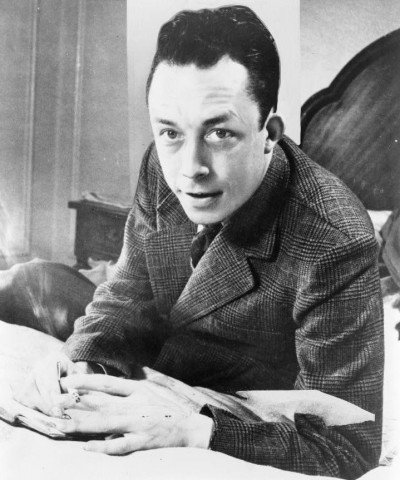

The absurdity of it all is self evident to any philosopher. Yet life also has purpose. After all, you are immortal and before you started this life, you chose your key experiences for this time around.
so we live this absurd life to gain experience and this makes our immortal spirit better.
Can you live with that? Obviously it then behooves you to be the best you can be.
The Absurdity of the World – and the Meaning of Life. Albert Camus
Camus's revolt against injustice
The Absurdity of the World – and the Meaning of Life. Albert Camus
Camus's revolt against injustice
Global Research, August 16 2022
In the seventies and eighties of the last century, in a time of material prosperity and diverse future prospects, the author avidly read the works of the Nobel Prize winner for literature, Albert Camus, but did not really grasp or feel their historical, philosophical and psychological depth.
A quarter of a century later, after a “life lived” and in the midst of dark times (Brecht), he wants to encourage people to reread Camus’ dramas, novels and philosophical essays: On the one hand, they offer orientation and support in the individual coping with the absurd world; on he other hand – and this is just as important as one’s own “survival” – they signify training in the spirit of revolt, that attitude of mind that wants to realise justice already on this earth, and not only in heaven. It is painful to experience that fellow human beings can only be won over to this with great difficulty.
Despite all the absurdity of the course of the world and the demonic nature of human history, Camus’ gloomy descriptions are outshone by a great love for the world and for fellow human beings. Thus his last message (handed down in writing) is: “Give if you can. And not hate, if that is possible.” (1)
The absurdity of the world – and the meaning of life
The problem of human existence is the basic motif of existentialist philosophising. According to Camus, the decisive question that every human being must ask is the question of the meaning of life. First, however, people must know whether they can unreservedly affirm this existence. Only then can they decide how they want to shape their lives.
As a rule, most people want to avoid this important problem, but excuses are useless: one must say yes or no. If it were no longer worthwhile to exist because everything has been recognised as absurd, there seems to be no other solution than suicide. Suicide is preceded by despair: the conviction that there is no way out, no confidence. The resolution that matures in the silence of a despairing soul is the most absurd of all resolutions and therefore the most difficult to grasp.
One should not believe that the problem of suicide belongs only to “pathology”, to the study of abnormal and pathological processes and conditions in the body and their causes. Even “normal” people know – especially in dark times – life situations in which the desire arises in the human heart to throw away the toil and agony of this existence. Thus, in the first Corona year 2020, suicides among young people also increased sharply (2).
According to Camus, however, the suicide is a philosopher whose attitude of cognition ends in failure. The suicide cannot stand the absurdity of the world that he grasps and escapes from it. Only a few are able to withstand the insight into the absurdity of the world; escape from it is the rule, both in everyday life and in philosophy, religion and science. The religious person excludes the absurdity of the world by hoping that a divine authority will guarantee a higher meaning.
No comments:
Post a Comment